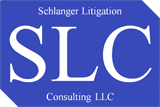Over more than 45 years, I have tried scores of cases to successful resolution, before judges, juries, and arbitral forums. But I believe I have had three principal functions.
First and foremost, to predict outcomes, so that clients could make informed decisions from the earliest point in the dispute.
Second, to resolve cases on the best possible terms at the earliest possible time, often through motions to dismiss or for summary judgment at the outset, or through pre-motion practice mediation.
Third, in those cases that could not be resolved short of trial, to try the case in the most efficient manner possible, in terms of legal fees, minimizing the time of company personnel, minimizing publicity, and preserving relations between the parties, who often will have continuing relationships in the business world.
In all cases, I have sought to establish and maintain cordial, respectful relations with opposing counsel, third party witnesses, and other interested persons, to promptly resolve discovery disputes and to keep motion practice to a minimum.
I have provided highly particularized budgets to clients at the outset of every case; I have revisited them regularly with the client; I have staffed my cases leanly; I have made sure the client was comfortable with case staffing; I have supervised closely, thereby ensuring that my younger colleagues remained focused properly; I have treated my staff with loyalty, dignity and respect; I have been available at any hour of any day—to my clients; to my partners; to my associates; to lay and expert witnesses.
And I have remembered at all times that the client is relying on my experience, judgment and integrity. In short, the buck stops with me.
As I make the transition from “trial lawyer” to “litigation consultant,” I will continue to live in full accordance with these principles—all day, every day.

